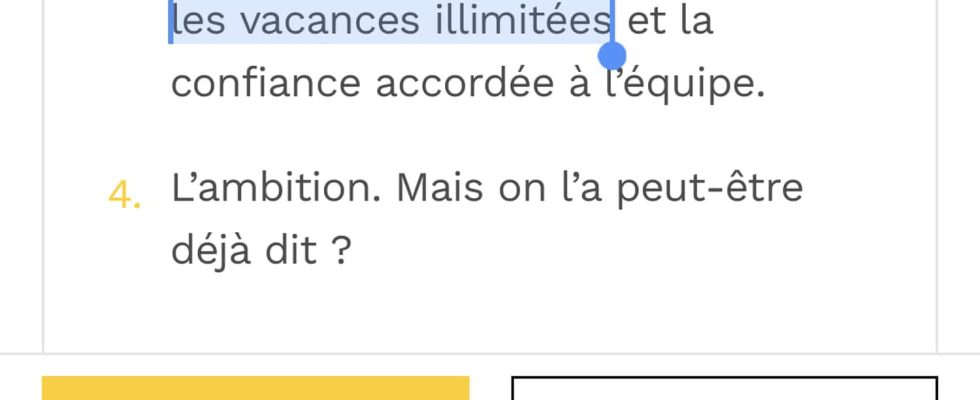The dream of many workers is already offered to dozens of employees.
It seems hardly believable. A dream that many workers dare not hope for as it seems improbable, even impossible. And yet, some companies offer it, praise it and highlight it in their job offers. “Unlimited vacation”, “Unlimited paid leave”: two formulations that are enough to make your eyes widen when you read them during a job search. But in France, many employees have moved from fantasy to reality.
If the Labor Code provides for a minimum of five weeks of paid leave per year, nothing prevents companies from going beyond. Very often, this is the result of negotiations between management and staff. But, sometimes, it is the company itself which chooses to go further than what the law provides. Until going to the opposite extreme.
At least five companies present in France are in this situation and allow their employees to go on vacation as long as they want. The stated objective: “to escape presenteeism” and recognize that “we all experience moments when we are less motivated (parenthood, personal difficulties, etc.)”, as explained by Nicolas Perroud, founder of Anikop, who practices unlimited leave.
“With us, today, employees no longer ask themselves the question of leave. If they need it, they take it,” he defended in an interview on Welcome to the jungle. Same story with Indeed, Popchef, Luko and OpenClassRoom, companies which have also implemented unlimited leave for several years and which openly display it in their current job offers.
Looking back, they all made the same observation: productivity increased. “The working week is more serene, we are more relaxed”, underlined, in 2020, Charles Chantala, commercial director at Indeed France, to the Figaro. Provisions which allow free rein to the organization of workers, depending on its missions at the time.
However, in all the companies that have put them in place, vacations cannot be arranged randomly: all are subject to validation by managers, particularly with regard to the additional workload that leaving a job would entail. an employee. Furthermore, you sometimes have to have a little seniority in the company (one or two years) to benefit from this right.
Feedback from companies that have implemented this system shows that on average, workers take around ten additional days of vacation per year, in addition to the mandatory five weeks. However, some companies abandoned the idea because, after implementing it, the workload transferred to colleagues was too great, which also harmed team cohesion.

